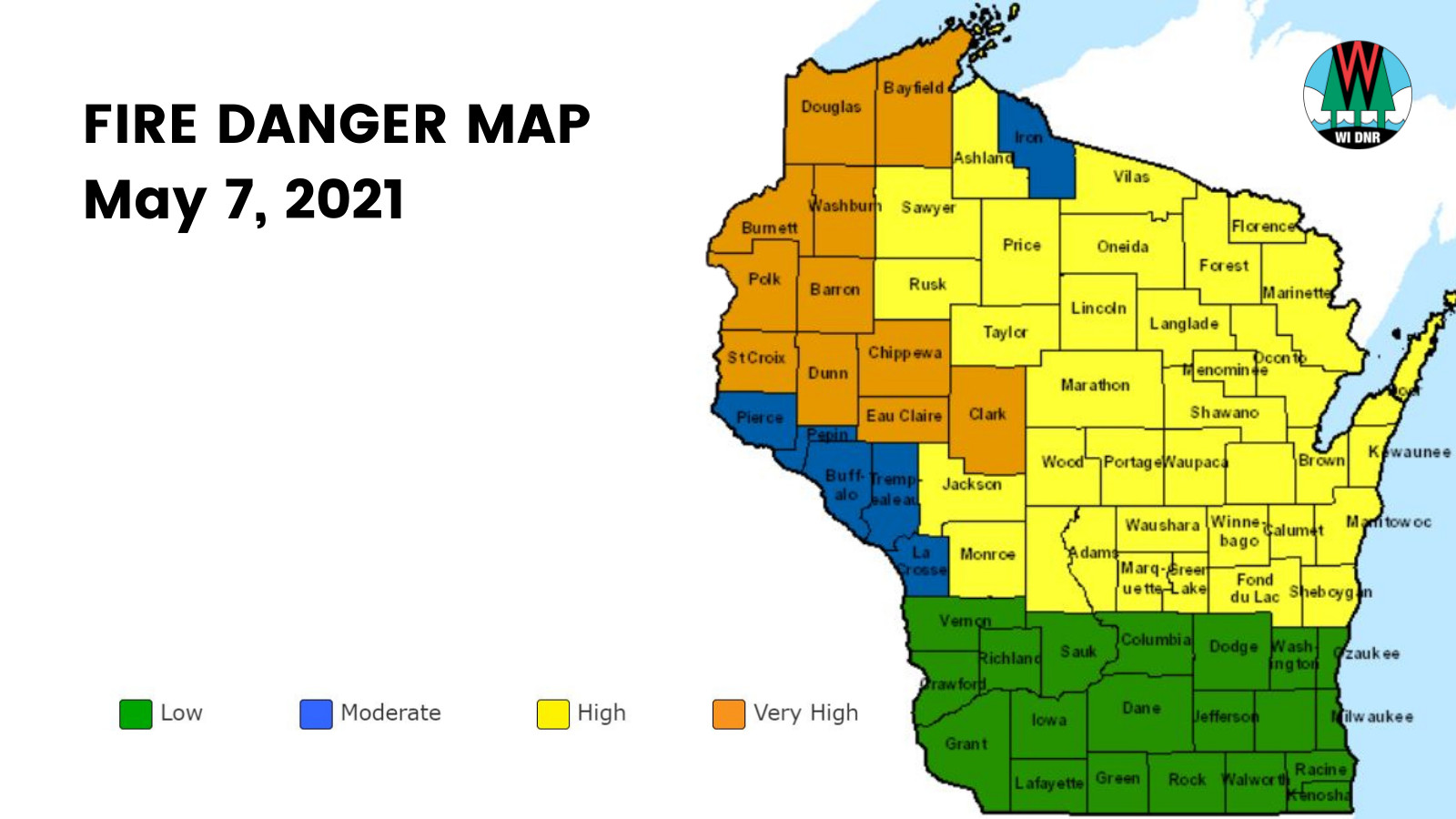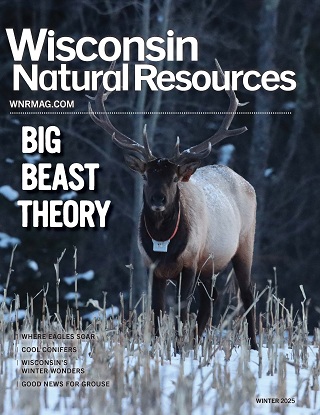Contact: DNR Office of Communications
DNRPress@wisconsin.gov
High Risk of Wildfires Continues As Dry Conditions Persist
Minimal Rain Chances Elevate Risk In The Northwest
 The DNR is asking the public to stay vigilant as fire danger is very high and high across the state once again this weekend.
Photo credit: Wisconsin DNR
The DNR is asking the public to stay vigilant as fire danger is very high and high across the state once again this weekend.
Photo credit: Wisconsin DNR
MADISON, Wis. – Wisconsin is coming into the homestretch of fire season, and the Department of Natural Resources (DNR) is asking the public to stay vigilant as fire danger is very high and high across the state once again this weekend, particularly in the north.
Green-up is progressing nicely in the southern half of the state, thanks to some much-needed rain earlier this week. However, the northwest part of the state remains dry, resulting in an elevated fire risk. We are paying very close attention to these areas as we near the peak of fire season.
Areas with VERY HIGH danger today include Barron, Bayfield, Burnett, Chippewa, Clark, Douglas, Dunn, Eau Claire, Polk, St. Croix and Washburn counties.
Areas with HIGH fire danger today include Adams, Ashland, Brown, Calumet, Door, Fond du Lac, Forest, Florence, Green Lake, Jackson, Juneau, Kewaunee, Langlade, Lincoln, Manitowoc, Marathon, Marinette, Marquette, Menominee, Monroe, Oconto, Oneida, Outagamie, Portage, Price, Rusk, Sawyer, Shawano, Sheboygan, Taylor, Vilas, Waupaca, Waushara, Winnebago and Wood counties.
There is MODERATE fire danger in Buffalo, Iron, La Crosse, Pepin, Pierce and Trempealeau counties.
Fire danger is LOW in Columbia, Crawford, Dane, Dodge, Grant, Green, Iowa, Jefferson, Kenosha, Lafayette, Milwaukee, Ozaukee, Racine, Richland, Rock, Sauk, Vernon, Walworth, Washington and Waukesha counties.
Burning debris is the leading cause of Wisconsin’s wildfires. Forty percent of all wildfires in Wisconsin this year alone have been related to debris burning.
The DNR has responded to 556 wildfires burning more than 1,700 acres so far this season, plus many more suppressed by local fire departments and federal partners.
Be extra careful with any outdoor flames, campfires, ash disposal or equipment use. Put off burning your debris pile until the vegetation "greens up." Please check any recent debris burns for smoldering embers, as breezy conditions can cause fires to rekindle.
Remember – fire danger and burning restrictions change every day.
CHECK BEFORE YOU BURN!
- Obtain proper burning permits—DNR burn permits are free
- The permit is the first step. Then, it’s important to check the fire restrictions each day before burning
- If burning is allowed, follow the important safety tips on the permit
- Make sure fires are out before leaving

